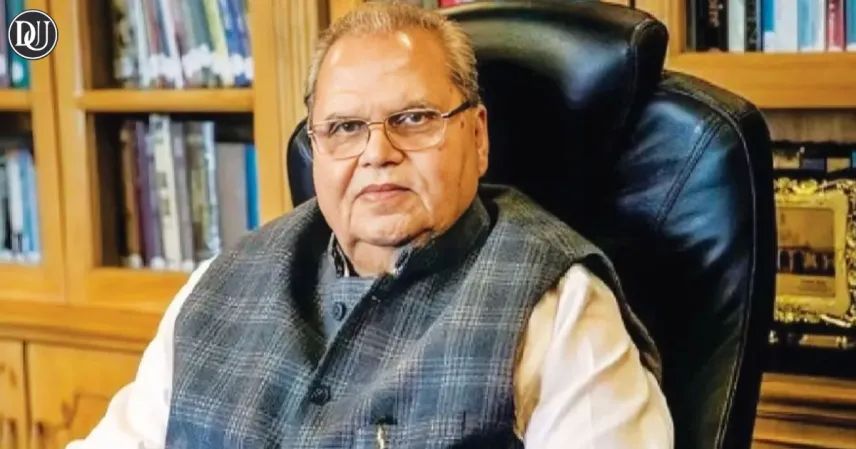His passing at 79, just heard about it, and my mind immediately went to… what an incredibly unique, almost anachronistic, figure he was in Indian politics. A really long career, crossing so many different parties over the decades, but then those last few years… that's where he really, truly stood out, don't you think? It’s rare to see someone in such a high constitutional post be so consistently outspoken, almost defiant, in the face of conventional political wisdom.
Early Life & Political Start ЁЯУЪ
Born in Uttar Pradesh, he started off as a student leader, which, you know, for a lot of older politicians, that's like a classic origin story. From student movements right into electoral politics. He wasn't just some local figure; he was a Lok Sabha MP, a Rajya Sabha MP too—a proper, multi-faceted political journey. But even early on, I think, there was this sense that he wasn’t just a party-line guy. He had a strong sense of self, a kind of independent streak that, honestly, is pretty admirable.
The J&K Years: A Crucial Period ЁЯНО
This is where his story gets really compelling, and probably what most people remember him for. Being Governor of Jammu and Kashmir during that whole Article 370 repeal period... can you imagine being in that hot seat? He was there right up until it happened, then moved on to other roles, but that tenure was just so pivotal. I remember the news cycles then, it was just constant, intense speculation. He had this reputation for being quite outspoken even then, which, like, for a Governor, is kinda unusual. They’re generally seen as figureheads, symbols of the state, but he always seemed to have an opinion, a voice, even in those formal settings. It was a sign of things to come, I guess.
Speaking Out: Controversies and Candor ЁЯЧгя╕П
This is, in my opinion, his real legacy. Post-J&K, he just kept speaking his mind, even if it meant directly criticizing the government he was supposed to be representing or had previously served. The Pulwama comments, for instance—saying the CRPF personnel weren't given air support, implying some pretty serious lapses… that took incredible guts to say publicly. Or his comments about corruption, how he allegedly refused certain high-profile deals. It’s like, he genuinely believed in accountability, even if it made him an absolute outlier in the political establishment. You don’t see that every day, honestly, someone in his position so willing to call things out. It really makes you question the broader culture of silence that sometimes permeates these high offices.
Governorships Beyond Kashmir ЁЯПЮя╕П
He didn’t just serve in J&K, though that was his most high-profile gig. He also served as Governor in Goa and then Meghalaya, right? Each of those states, I'm sure, had their own unique set of challenges and political dynamics, though maybe not as globally visible as Kashmir. I’m not entirely sure of the specifics of his tenures in those states, but I do know he was generally seen as someone who didn't shy away from administrative challenges. It speaks to a certain kind of resilience, a willingness to take on tough jobs, even if it meant being in the spotlight and facing scrutiny. He wasn’t afraid of the pressure, it seems.
Legacy: A Dissenting Voice? ЁЯдФ
You know, for someone who spent so much time affiliated with the BJP in his later career, he really ended up being one of their most prominent internal (or, well, former internal) critics. It’s genuinely rare to see that kind of public dissent, especially from someone who held such high constitutional posts appointed by the very government he was critiquing. It makes you wonder about the balance of power, the real role of a Governor—is it to be a rubber stamp or an independent check on power? He leaned so heavily into the latter, it seems. And that’s pretty significant, if you ask me, in the context of Indian democracy. It sets a precedent, even if it’s an uncomfortable one for some.
Reflections on a Political Journey тЬи
His passing, honestly, really makes you reflect on the arc of Indian politics, doesn't it? From the socialist era he started in, all the way to the current landscape. He was a bridge, in a way. Someone who saw it all, experienced so much, and then consistently chose to speak his version of the truth, even if it was inconvenient, even if it put him at odds with powerful figures. You have to respect that, I think. It’s a powerful reminder that even within established political systems, there’s always room for individual conscience, for a voice that challenges the narrative. And that, frankly, is something we probably need a lot more of in public life right now. He definitely left his mark, no doubt about that.










